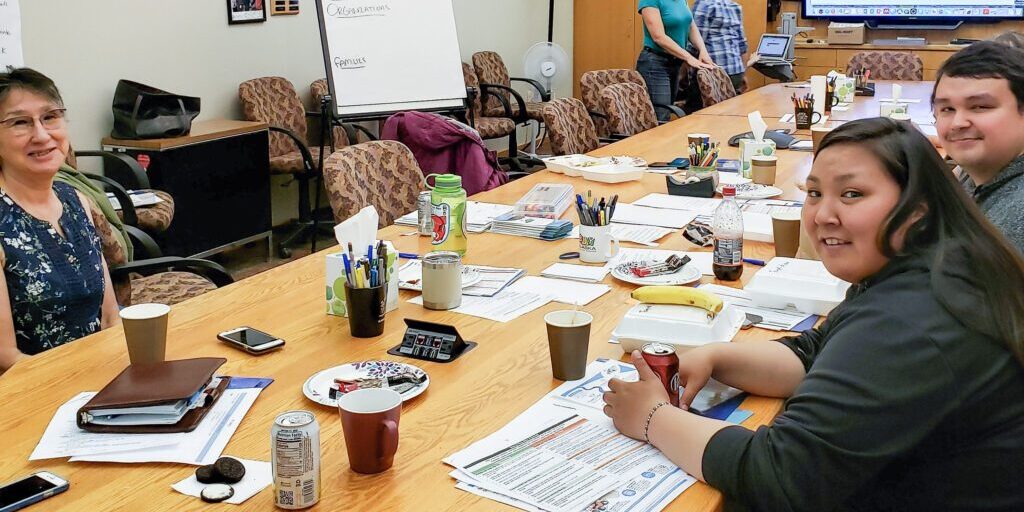“Suicide has always been a really hard issue to talk about… Even for myself personally. It took me a long time to talk about my parents, but to me it was a very long and difficult road. I carried a lot of false guilt, that’s what I’m calling it now, thinking I could have done something, maybe if I was there then it wouldn’t have happened… People without meaning to, they said ‘oh if you were there, then it wouldn’t have happened.’ And so [they] tell somebody it was your fault, and it wasn’t your fault.”
That’s Emily Murray of Elim. She is a member of the local steering committee for Promoting Community Conversations About Research to End Suicide, or P.C. CARES.
As Murray describes, suicide has a tremendous impact in Western Alaska, where people must depend on each other. It happens far too often.
Attitudes are changing. This winter, P.C. CARES facilitators were trained to host five learning circles in communities from the Bering Strait Region, Yukon-Kuskokwim Delta, and Northwest Arctic Borough.
The model gives villages the opportunity to participate and train facilitators from each community.
Lisa Wexler, a primary investigator, says they work with village-based coordinators and health aides to reach more people locally.
“The whole process is all about self-determination and about people deciding for themselves what they want to do and how they want to do it. We’re here to sort of spark interest and maybe a few new ideas in the mix, to give people a chance to come together to learn and to take action to make their communities more well,” Wexler said.
Diane McEachern, who created a course that gives college credit to P.C. CARES facilitators, says the goal is to ignite a local chain reaction to prevent suicide.
“We were able to track what people did afterwards; not only did people learn new information, not only did people get new skills and feel like they had more people to work with to do wellness and prevention, but they also talked to their friends and family about it and those people, their friends and family, went on to do more prevention after.”
Emily Murray in Elim agrees. “For communities to heal, I believe it has to come from us. It can’t come from outside, it has to come from us saying that we want to heal… Now is the time for healing in Western Alaska.”
Image at top: Village-based coordinators from the Bering Strait Region gathered in Nome for an information session about P.C. CARES, a new suicide prevention effort.







